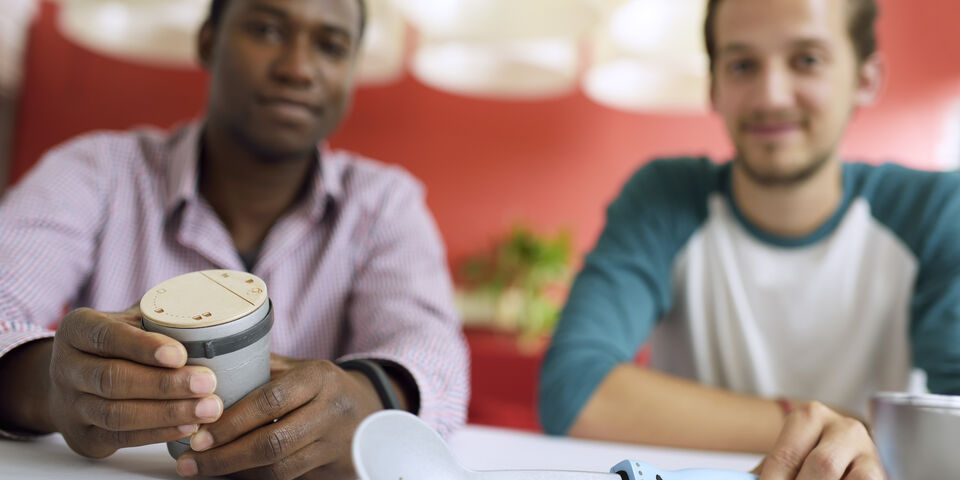Major grant for Do CHANGE project
The European Commission is allocating 4.7 million euros to the European Do CHANGE project, in which designers from Designed Intelligence in the Industrial Design department are involved. The Taiwanese government is also providing funding of 1 million euros through the participation of the ITRI institute and a hospital in Taipei.
The project is intended to give people with heart problems and high blood pressure a better understanding of the composition of their diet. This will enable them to monitor what they eat and drink using an ICT system containing portable measuring and scanning instruments. PhD candidate ir. Idowu Ayoola and ir. Sander van Berlo (both of the Industrial Design department) have now developed the first prototype smart beakers and a salt-sensing spoon through their start-up venture Onmi.
The system has three aspects. First of all there is automated reporting in which the measuring instruments, such as the beaker or spoon, become part of everyday routine. Secondly Do CHANGE increases the independence of the patient. Users are in charge of their own data, and can decide for themselves what information they want to share with doctors, carers and lifestyle coaches. These two aspects are integrated by the company Synergetics. The third task is the ‘Do Something Different’ psychological method from two UK companies, to keep participating patients motivate so they stick to the nutritional advice they are given.
The prototypes are expected to be ready for use in around three years. These include a smart spoon that measures the amount of salt in a meal, and a microspectrometer to measure the composition of food when eating outside the home. This is shown in the form of measurements and results on a tablet or smartphone. The system on the one hand creates behavioral change among users, and on the other hand it makes patient data accessible to doctors and carers. The use of eating and scanning instruments in the home can lead to big savings in care costs and a new kind of doctor-patient relationship.
The Do CHANGE project consists of a consortium of 11 partners and parties. The coordinator is the Eindhoven-based Smart Homes foundation, the knowledge center for domotics and e-health. TU/e and Onmi are working particularly on the design of the user interface for the system.
Also involved in the research and development are the cardiology out-patients department of the TweeSteden Ziekenhuis hospital and the St. Elisabeth Ziekenhuis hospital in Tilburg. Patients of the two hospitals are involved in the project. Synergetics (which has a branch in Eindhoven) is responsible for the patient care tasks.
Source: TU/e press team


Discussion